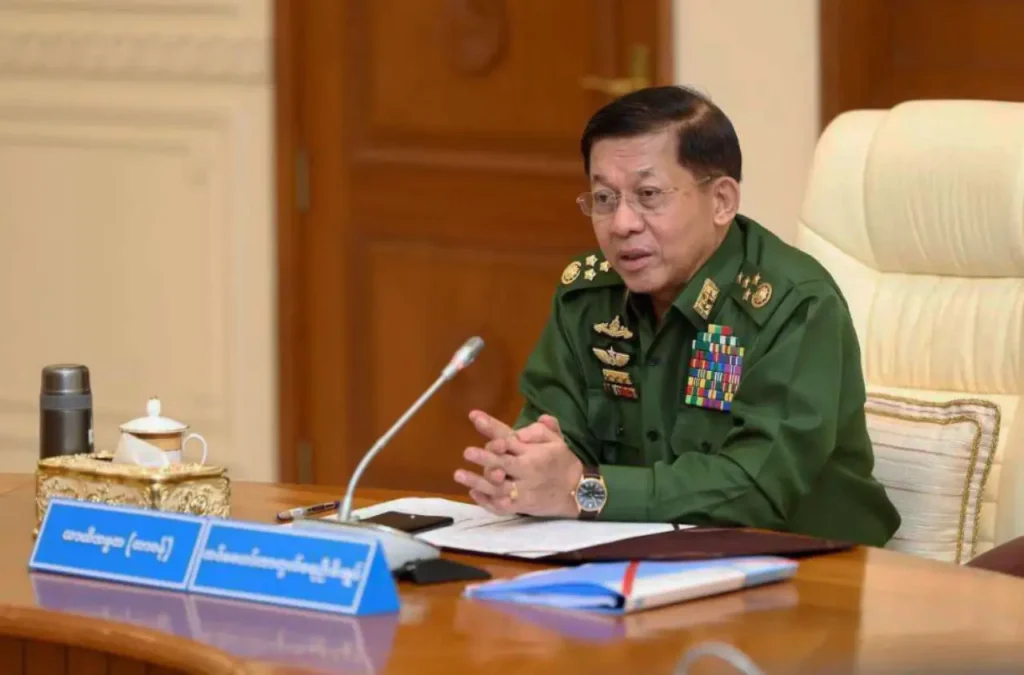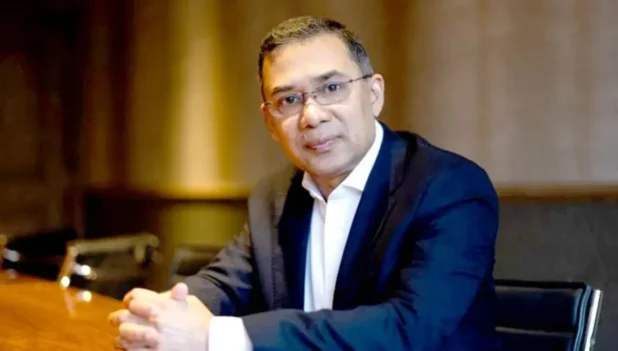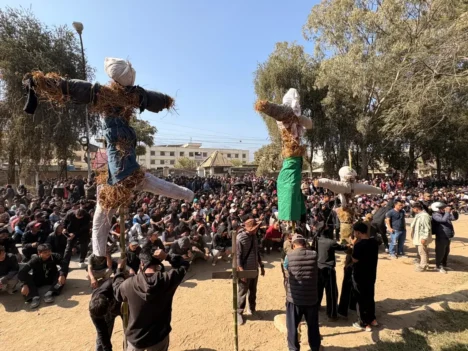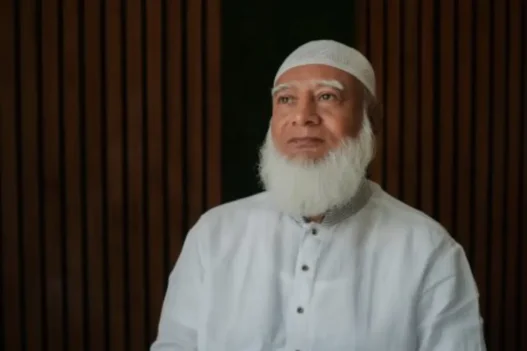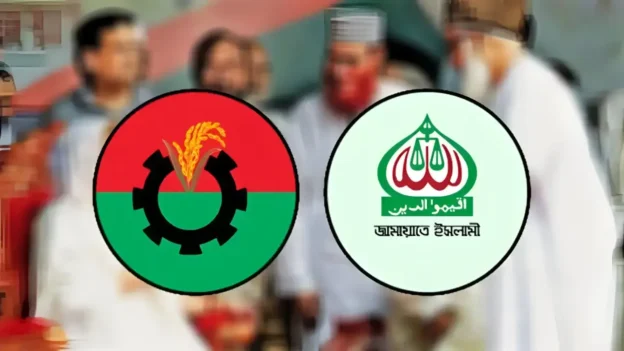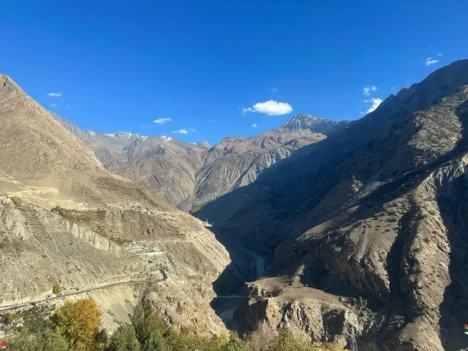Myanmar once again stands at the crossroads of a supposed democratic transition—a scene that closely mirrors the political drama of 2010, though with new actors playing familiar parts. The military’s recent decision to lift the nationwide state of emergency, ending more than three years of direct martial rule, was announced with much fanfare in state media. Yet for most Burmese, the reality on the ground remains unchanged.
Senior General Min Aung Hlaing, architect of the 2021 coup, swiftly declared himself acting president of an interim “civilian” government. In truth, the generals remain firmly in command. The former State Administration Council (SAC) has simply been rebranded as the National Security and Peace Commission—a 10-member body filled with military brass and close allies, including Min Aung Hlaing’s longtime adviser and business supremo Nyo Saw, now serving as caretaker prime minister.
Alongside this transition, the regime has established a special commission to oversee elections planned for late December and early January. However, the structure of power is unchanged: half the members of the new commission are SAC loyalists, and all key domains—security, defense, and electoral oversight—remain tightly controlled by the military.
This arrangement is reminiscent of the 2010 transition engineered by Senior General Than Shwe, which produced a military-friendly civilian façade. Under Myanmar’s 2008 Constitution, a quarter of parliamentary seats are reserved for the armed forces. The military’s proxy, the Union Solidarity and Development Party, is widely expected to dominate the ballot, as the main opposition forces—the National League for Democracy (NLD) and the National Unity Government (NUG) in exile—have pledged to boycott what they regard as a charade.
Despite a reshuffling of titles—Min Aung Hlaing steps down as prime minister but retains both the presidency and military command—the cabinet remains essentially unchanged. Only two ministers have been replaced, underscoring the superficiality of the so-called transition.
What remains is a country where elections are poised to proceed under the shadow of armed conflict, mass displacement, and deep mistrust. Min Aung Hlaing’s bid to rebrand his rule as a step towards “multi-party democracy” is widely seen as an attempt to secure legitimacy without ceding real power—a move that echoes the 2010 elections, which brought General Thein Sein to office after the NLD’s boycott.
As Burmese commentator Sai Wansai aptly put it on his Facebook, the entire move is “a big joke,” no more than a costume change by the military on the political stage. For Myanmar’s citizens, genuine democracy is a distant promise—deferred once more by the generals’ iron grip, while new commissions and caretaker governments appear to be merely another act in an old play.
According to sources in Yangon, the present dispensation under Senior General Min Aung Hlaing is planning elections in phases—starting with peaceful townships and gradually expanding to others, likely from the end of December through early January. The 2008 Constitution is said to permit such an arrangement.
As the political stage is set, parties confirmed to participate include the People’s Party, led by prominent 88 Generation activist Ko Ko Gyi, and others such as Thet Thet Khine, former Social Welfare Minister and ex-NLD MP, who was expelled from the NLD under Aung San Suu Kyi before joining the SAC in its first term following the February coup.
Ethnic parties from the Shan, Mon, and Kayin States are mostly new entities or those not aligned with the NUG movement. For instance, the Shan Nationalities Democratic Party (SNDP), known as the “Kya Phyu Party” or “White Tiger,” claims to represent the interests of the Shan people and is likely to contest the polls. The National Unity Party (NUP) which is a successor to the Burma Socialist Programme Party (BSPP) is also expected to be among the participants.
However, as Yangon based writer Myint Htet (name changed for safety) who has remained in Myanmar since the coup observes, “a dozen ethnic parties will take part in the elections,” but “the big ones”—those aligned with the Kachin Independence Organisation (KIO) in Kachin, the Arakan Army in Rakhine, or the Karen National Union (KNU) in Kayin—will stay out. “These are all the groups which have sworn to oust the military and they are unlikely to buckle under any sort of pressure,” he adds.
Does this mean the elections will be controlled, like those in 2010? “Yes, definitely,” says, Myint noting that the present regime has already enacted a new Cyber Law, effective July 30, under which VPNs are banned and social media users are warned not to post content opposing the elections, with threats of up to three years’ imprisonment. Print and electronic media have received similar warnings. “The military chiefs will take all the decisions,” Myint remarks.
But what about areas under the control of people’s revolutionary forces or People’s Defence Forces (PDFs) and Ethnic Armed Organisations (EAOs)? Journalists like John and other activists point out that, with most of these regions controlled by armed groups, “it would be interesting to see how the military junta conducts a free and fair election.” Despite military claims of controlling 63 townships, “the ground picture is different. Most of the areas are well within the control of ethnic armed groups and PDFs. Even in the Ayeyarwady division, a couple of townships are under the control of the AA,” Myint notes.
The junta is making every effort to coax ethnic armed groups into the electoral process, reportedly even pushing peace talks. Critics, however, dismiss these overtures as futile, given the broad anti-coup coalition now working towards ousting the military and restoring democracy in Myanmar.
“The military is surely interested in complete peace and democracy,” claims Myint, highlighting how the SAC has consistently labelled the NUG and PDF as “terrorists.” When recently asked about the possibility of inviting such groups to join the elections, the SAC spokesperson categorically stated that peace talks are only intended for “ethnic groups or ethnic armed organisations.”
In the end, for the people of Myanmar, the script remains unchanged: an election managed by the military, a democratic façade, and genuine change pushed further down the road. The latest “transition” is less a new chapter than a familiar play, retold with new actors but an all-too-predictable ending.

